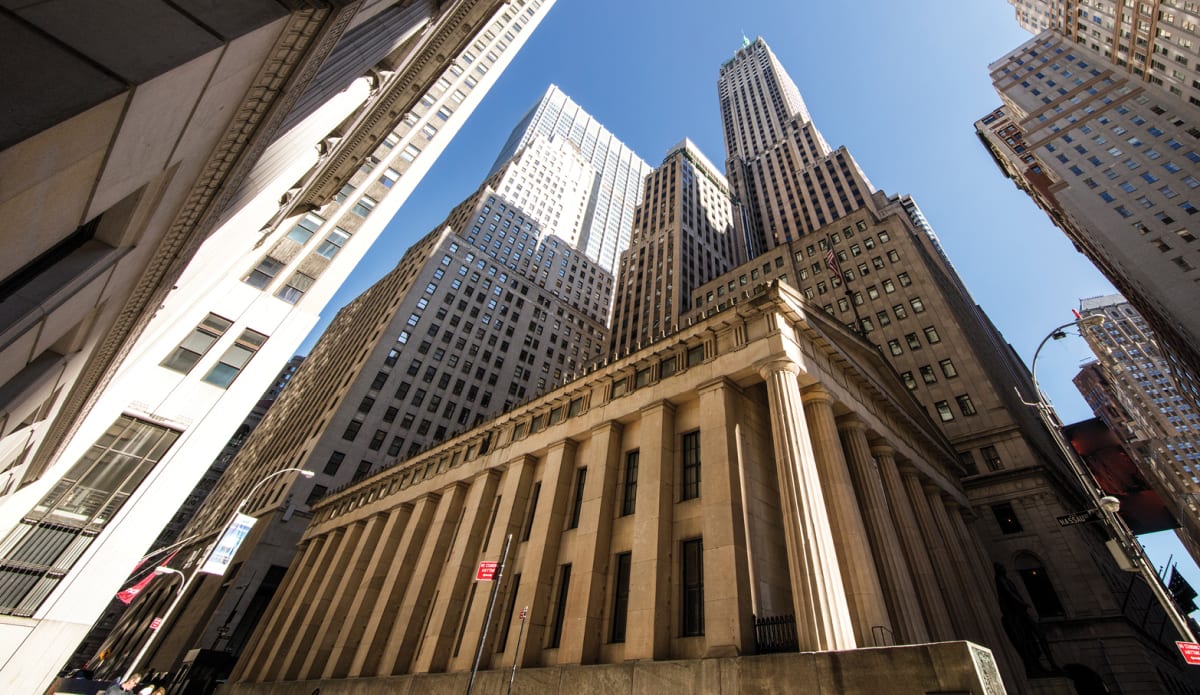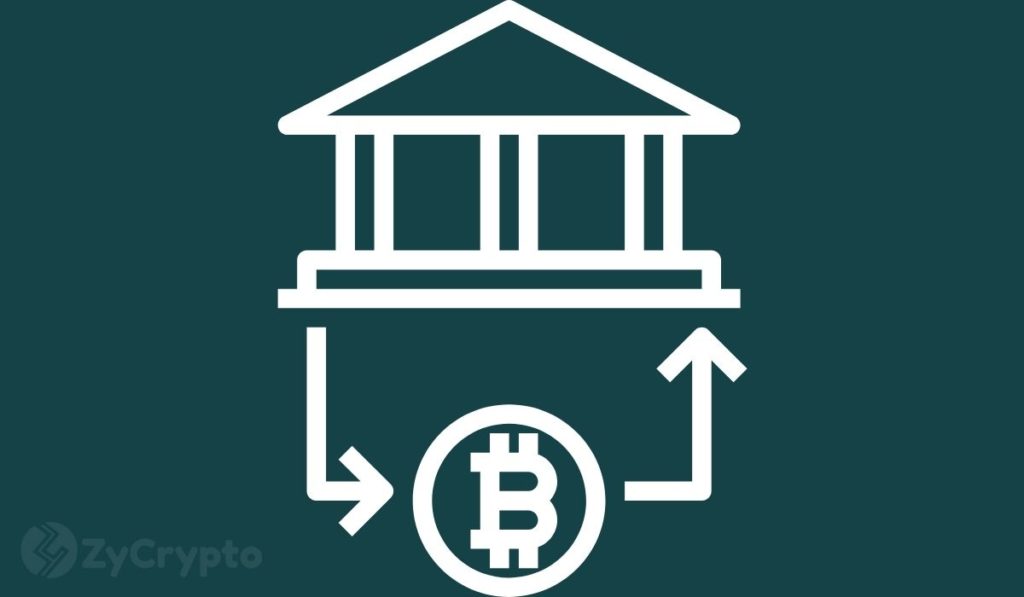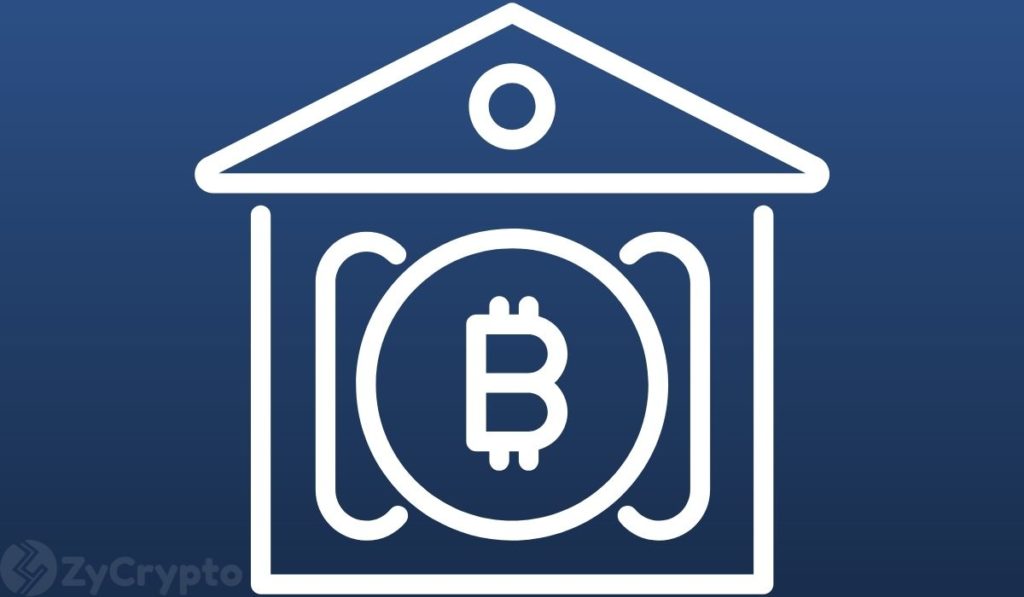2023-4-1 22:04 |
The world of finance is an ever-changing landscape, with the emergence of new challenges and solutions constantly shaping the way we interact with money. One such challenge is the rise of “zombie banks,” which threaten to destabilize the economy. However, amid the gloom, there is a glimmer of hope – the growing popularity of Bitcoin and other cryptocurrencies.
This article examines the complex relationship between these troubled banks and the potential of digital currencies to replace a broken financial system.
The Undead Among UsIn examining the effects of government intervention and the emergence of zombie banks, it’s crucial to grasp the wider context surrounding these developments. The financial sector is characterized by intense competition yet little innovation, with the very stability of the economy at stake.
In the midst these dynamics, cryptocurrencies like Bitcoin have gained prominence, presenting the potential to disrupt and transform traditional banking systems. By offering an alternative to the challenges posed by zombie banks, crypto innovation may reshape the financial landscape.
When Intervention BackfiresThe American banking crisis may have seemingly retreated, but storm clouds still loom. Government intervention, initially intended to avert disaster, now nurtures unprofitable banks. This creates fresh challenges for the economy, as they impede growth and innovation. Meanwhile, alternatives like Bitcoin emerge as potential saviors, offering a decentralized solution to the financial sector’s woes.
Government’s Sticky WebGovernment intervention plays a pivotal role in the financial system, often providing much-needed support. However, this safety net can entangle institutions, making them dependent on state aid. Over time, shaky banks arise, threatening the economy’s stability with their inefficient operations and vulnerability to shocks.
Zombie Banks: A Growing ConcernThese troubled banks, also known as “zombie banks,” struggle to generate profits and rely on government support to stay operational. The persistence of these institutions raises concerns about the long-term health of the financial sector and the broader economy.
When Bailouts BackfireThe Savings and Loan crisis in the 1980s and the Global Financial Crisis of 2008 exemplify the consequences of weak regulation and overreliance on government bailouts. In both cases, government support for failing institutions led to moral hazard and prolonged the crises, resulting in significant costs for taxpayers.
Faltering Giants: The Impact of Troubled BanksThe presence of these banks casts a dark shadow over the financial landscape. They consume resources and crowd out healthy competition, hindering economic growth. As these institutions struggle to stay afloat, their potential collapse could set off a chain reaction, sparking another crisis.
Lehman Brothers: A Cautionary TaleThe collapse of Lehman Brothers in 2008 serves as a stark reminder of the risks associated with large financial institutions. The ensuing chaos and government intervention underscore the need for robust policy changes to prevent similar scenarios and ensure a stable financial system.
Seeking BalanceAddressing the issue of troubled banks requires a delicate equilibrium. Balancing government support and market discipline is crucial for maintaining financial stability. Policymakers must explore various strategies to prevent another crisis, such as regulatory reforms, fostering competition, and embracing technological advancements.
Regulatory Reforms for a Healthy Financial SystemOne solution involves strengthening regulations. Tighter banking safeguards and a rollback of lenient rules from previous administrations can help mitigate risk. Implementing stress tests, higher capital requirements, and increased transparency can fortify the financial system and ensure that banks operate responsibly.
Competition: Lifeblood of Innovation and EfficiencyFostering competition can also help remedy the situation. By encouraging new market entrants and innovative financial products, traditional banks face pressure to adapt. In the face of intense competition, only the strongest institutions will thrive, promoting a more efficient and resilient financial system.
Bitcoin: A Decentralized AlternativeAmidst the troubled banking landscape, Bitcoin emerges as a beacon of hope. The decentralized nature of cryptocurrencies offers a viable alternative to traditional financial institutions. Bitcoin’s rise could signal a new era, challenging the status quo and global legacy banks.
Cryptocurrency’s Edge: Transparency, Decentralization, and Reduced RiskBitcoin’s blockchain technology provides a transparent and decentralized solution. Unlike central banks, Bitcoin operates independently of government control, reducing the risk of mismanagement. In addition, its decentralized nature empowers users, fostering innovation and reducing systemic risk.
Bitcoin’s Adoption: Changing TimesBitcoin’s adoption has been steadily increasing. Major corporations have invested in the cryptocurrency, while payment giants such as PayPal and Visa have integrated it into their platforms. This trend suggests that Bitcoin is gaining ground as a viable alternative to traditional financial systems, providing an opportunity for a more resilient and inclusive economy.
El Salvador: A Bold ExperimentEl Salvador’s recent adoption of Bitcoin as legal tender demonstrates the cryptocurrency’s potential to challenge the established financial order. While it’s still early days, the Central American nation’s experiment serves as a litmus test for other countries considering a similar approach. If successful, El Salvador could pave the way for broader adoption of Bitcoin and other cryptocurrencies worldwide.
A Panacea for Troubled Banks?Although Bitcoin offers an alternative to traditional financial institutions, its mass adoption is not without challenges. Issues such as scalability, energy consumption, and regulatory hurdles must be addressed for the cryptocurrency to realize its potential.
But with continued innovation and growing acceptance, Bitcoin could reshape the financial landscape, ultimately reducing the influence of troubled banks and promoting a more stable financial system.
The Road to Financial StabilityIn conclusion, the apparent calm in the banking sector is deceptive. Troubled banks lurk beneath the surface, posing a risk to the economy. Policymakers must strike a balance between government support and market discipline to ensure stability. Bitcoin, with its decentralized nature, emerges as a potential solution, providing an alternative to traditional financial systems.
As Bitcoin’s adoption grows and innovations address its challenges, the cryptocurrency could play a significant role in mitigating the risks associated with troubled banks. The evolving financial landscape offers opportunities for change, and Bitcoin might just be the catalyst needed to usher in a new era of stability and prosperity.
The road to financial stability is fraught with obstacles, but embracing alternative solutions like Bitcoin could pave the way for a brighter, more secure future. By fostering innovation, promoting competition, and supporting the adoption of decentralized technologies, we can work towards a financial system that is both robust and inclusive, ensuring a better tomorrow for all.
The post Can Bitcoin Counter the Dangers of Zombie Banks? appeared first on BeInCrypto.
origin »Bitcoin (BTC) на Currencies.ru
|
|




























